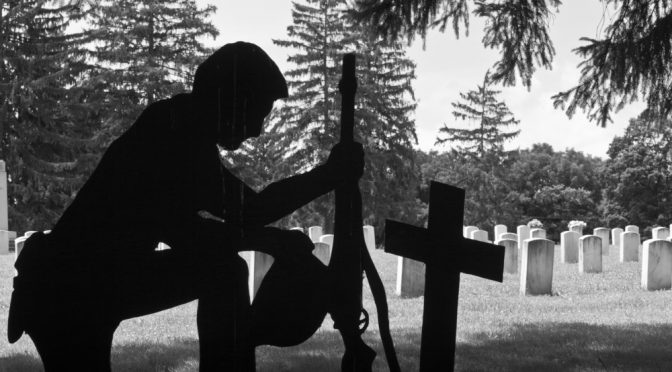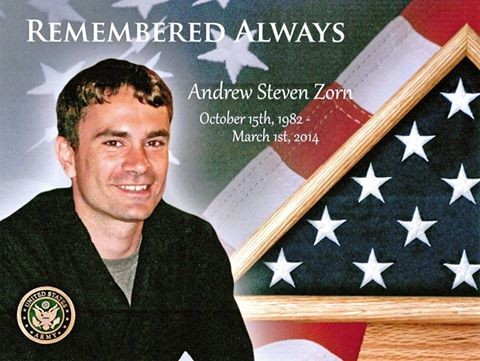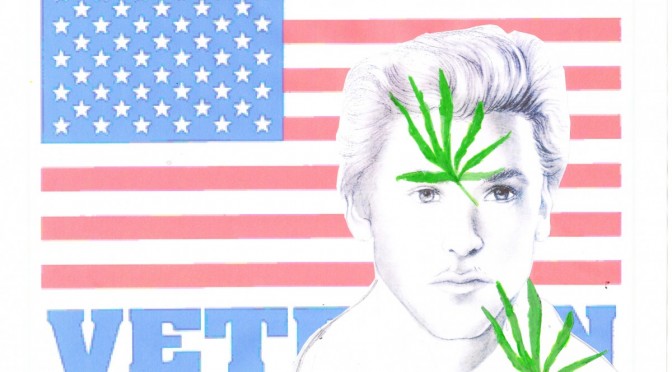On Veteran’s Day we honor Andy Zorn who died in March 2014, age 31. His mother Sally Schindel wrote this statement about his killer.
Andy Zorn’s mission was to make friends and families laugh. He was the class clown. He made parties come alive. As he grew older, he helped friends through tough times. He served with the Army’s 82nd Airborne Division in Iraq.
His bright future, however, masked a dark secret. Marijuana abuse took him down a spiral suicide help lines, hospitalizations in five mental health hospitals and two stints of court-ordered mental health treatment. He told his mother, father and social worker he had to quit using marijuana if he is to live, but he just couldn’t do it.
And then, at the age of 31, my son hanged himself from a tree in Peoria, Arizona. His suicide note the cause of his death. “I want to die. My soul is dead. Marijuana killed my soul + ruined my brain.”
As I came to terms with Andy’s death and the note he left, I was confused. I’d always believe marijuana wasn’t addictive. My research since has revealed I was far from the truth. Marijuana is highly addictive. Almost one in three users of marijuana exhibit symptoms of substance use disorder. I learned later that my son had been diagnosed with severe cannabis use disorder.
Andy’s wallet contained his medical marijuana card and a dispensary loyalty card, indicating his numerous purchases and progress toward earning a free eighth of an ounce. So I visited the manager at the store he frequented. I wanted her to know my son’s story so she could prevent another death by recognizing someone in trouble with addiction. I asked her to watch for any healthy young person buying the limit of 2-1/2 ounces every 15 days, which could be a sign of dependence.
She told me marijuana is not addictive. “Marijuana has never been related to a death,” she insisted. I asked her to look at my sons suicide note. I asked her to look at his death certificate, one no parents want to see listing suicide as the cause of death. I offered her copies to share with her patients to help prevent another death.
She declined and asked me if there was another explanation for my son’s death, another drug in the coroner’s report. No there were no other drugs. She pointed out the décor in the dispensary: giant copies of checks to local non-profits, including a children’s hospital. I suggested she consider donating to organizations that educate youth to prevent drug and alcohol use at the early ages susceptible to substance use disorders. She said that wasban interesting idea.
I took note of other décor in the dispensary. A sign in the receptionist’s window promoted products with 90 percent THC, the psychoactive element of pot. In the 1970s, THC content was in the low single digits.
Then I left because I know a business is unlikely to help prevent use of its product by people who will be its best customer in the future. I left because I am sickened by an industry that refuses to acknowledge the known risks of its products. I left because this woman made it clear she will continue to sell her product without feeling responsible for customers exhibiting signs of abuse.
I left because my desire to save a life like my son’s is wasted on anyone in this industry. Marijuana is much like the tobacco industry of the past, which refused to acknowledge known risks in its product.
Editor’s note – Since the tobacco industry is required to post health warnings, the marijuana industry should be required to use warning labels, also. A long-term study of from Yale showed that marijuana makes PTSD worse, and no health organization validates marijuana as a treatment for PTSD.
Here’s an article about alternative treatments for PTSD and pain.



